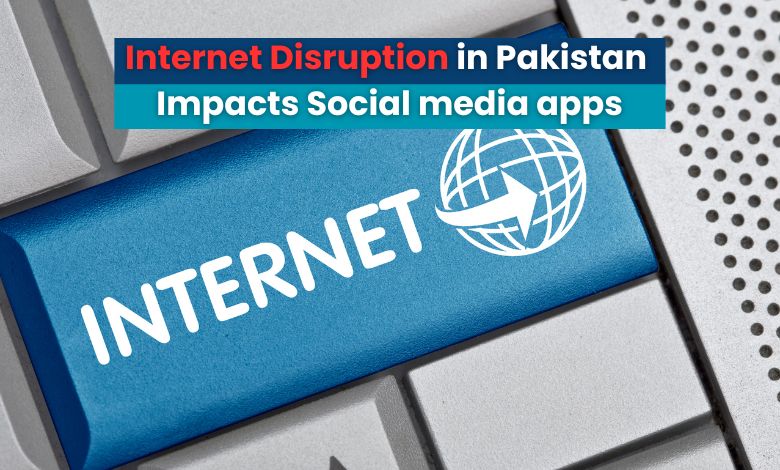The Internet disruption continues, and individuals are having trouble using Facebook Messenger, WhatsApp, and other social media apps; only text is being transferred, but no voice, image, or video is being transmitted.
The mobile phone has turned into a radio; news is sent, but photos and videos are not. Thousands of Internet packages are going to trash.
According to sources, the disruption is caused by the Pakistani government’s most recent farewall installation.

The PTA and the Pakistan Electronic Media Regulatory Authority (PEMRA) jointly regulate digital media services,represents a unified approach to managing the country’s digital ecosystem. This initiative aims to enhance oversight and ensure alignment with national security concerns and broader national interests.
Read More: Pakistan Faces Internet Outage
Current Disruptions and Concerns
Recently, the Information Minister addressed concerns about the installation of a firewall intended for cyber and data security, dismissing fears that it could infringe upon freedom of speech. Traditionally, firewalls protect devices from harmful network traffic. However, the ‘firewall’ being discussed in Pakistan appears to serve a different purpose, potentially restricting information flow as a means of political control.
The minister’s remark during a visit to China—where he noted never having encountered the term ‘firewall’ but only the Great Wall—raises questions. The term ‘firewall’ in information control is often associated with China’s ‘Great Firewall,’ also known as the ‘Chinese Golden Shield.’ This raises speculation: Was the minister possibly using a VPN in China, as he does in Pakistan, to bypass restrictions on X (formerly Twitter)?
The recent disruption of WhatsApp services in Pakistan provided a glimpse into the extent of network filtering. Users reported difficulties in downloading or transferring media—such as images, videos, stickers, and audio notes—via WhatsApp while using mobile data. However, the issue resolved when switching to broadband or using a VPN. This suggests that the problem was localized and not a global app-level issue.
The Information Minister attributed the disruption to a global issue, specifically the CrowdStrike disruption, but this claim was quickly debunked. Meta, in a statement, confirmed that their services were functioning normally, attributing the problem to a “local fault.”
The WhatsApp disruption in Pakistan appears to align with models seen in other countries like the UAE, where certain functionalities of foreign apps are restricted. In the UAE, while WhatsApp chat and media are operational, voice calls are restricted due to limitations on Voice Over Internet Protocol (VoIP).
The disruption in Pakistan, targeting WhatsApp’s app functionality, suggests a similar approach to controlling information flow, potentially through methods such as throttling or reducing internet speeds.
Read More: Slow Internet and Social Media Goes Down in Pakistan
Join INCPak Whatsapp Channel to stay updated!

















